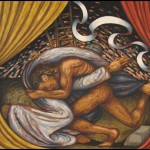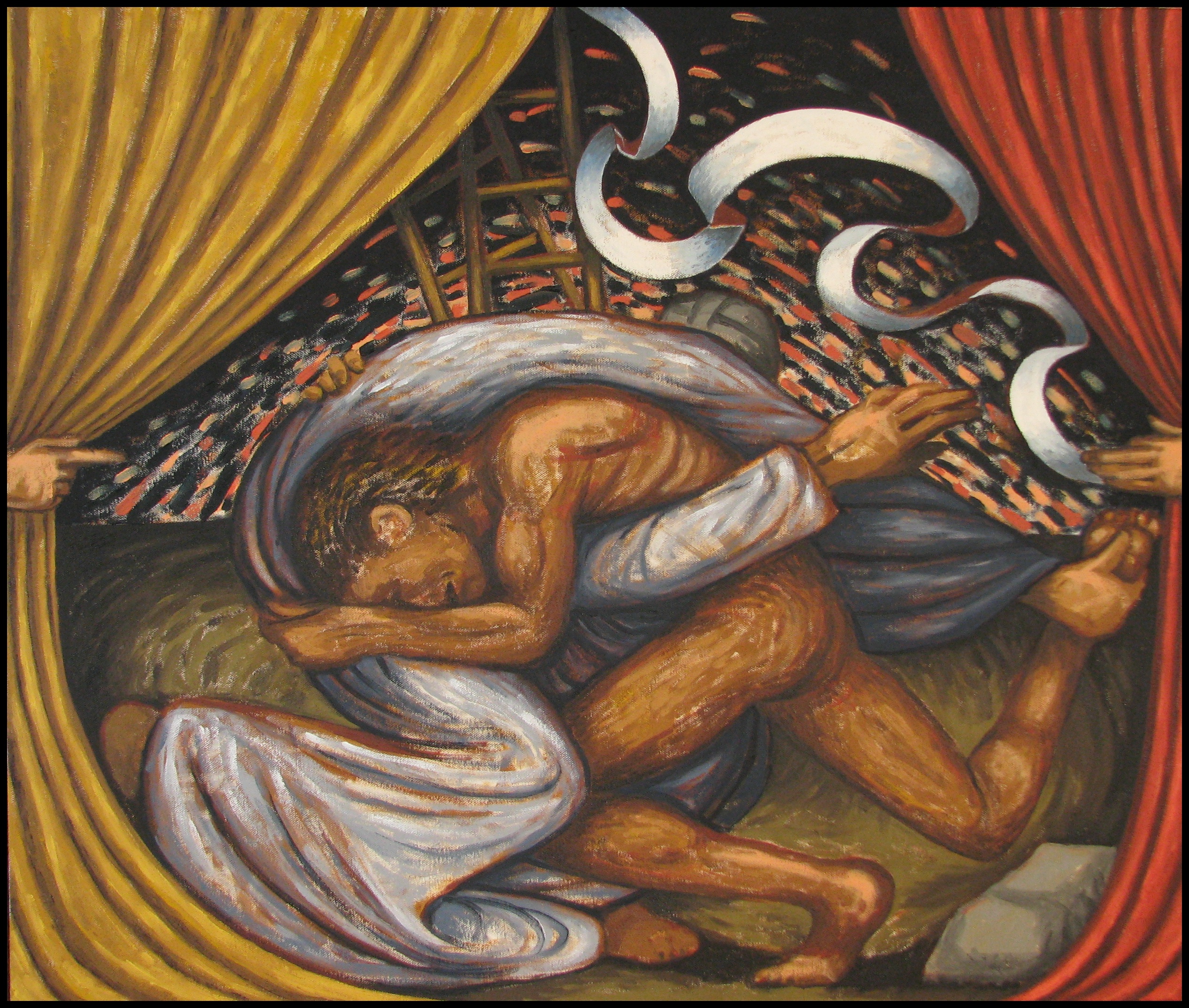
The Book of Revelation, the final book of the Bible ends on an ecstatic note,
“The Spirit and the bride say, “Come!” Let the one who is thirsty come; and let the one who wishes take the free gift of the water of life.
Maranatha. Come Lord Jesus.”
Through the day, when you feel distracted, or sense stress rising, or your breathing becoming ragged, try a breathing prayer. Say this ancient Aramaic word to yourself, Maranatha. Four equally stressed syllables which mean Come Lord Jesus.
So as we begin to calm down and enter our bodies, let’s say that, one syllable with each inhale and exhale. Ma-ra-na-tha. Ma-ra-na-tha. Come Lord Jesus.
And now to today’s meditation on how our very failures are the cracks through which God’s light gets in.
The ancestors of the Lord Jesus Christ
As outlined in the first chapter of the Gospel of Matthew:
The deceiving, scheming younger brother Jacob
Who tricked his elder brother out of his inheritance;
Tamar, who tricked her father-in-law into sex.
Rahab the Canaanite prostitute, mother of the honourable Boaz.
Ruth, the determined and destitute Moabite widow
Who, bathed and perfumed, crept in the dead of night,
To lie beside an inebriated Boaz.
Ruth and Boaz, grandparents of King David
Who spotted beautiful Bathsheba, wife of Uriah the Hittite,
Bathing on a roof, summoned her to bed,
And when she fell pregnant, had her husband
Uriah, who was off fighting for King David, killed.
Bathsheba, mother of Solomon whose “heart was led astray
by his seven hundred wives and three hundred concubines”.
From such, the Lord Jesus Christ came.
And who are the descendants of Jesus,
Grafted into his family by the faith
That Christ, who visited us twenty centuries ago,
was God himself, God who can change
the deep structure of our characters,
and the molecules of our heart and spirit?
Those descendants include us
whose failings may be less spectacular,
but as secret, and as sad.
The one who flogs the dying horse of her exhausted mind
with cups of coffee until it burns out;
Who takes on far too much of the insignificant,
putting neither first things nor first people first.
Who is distracted from distraction by distraction,
While her house gets cluttered and overwhelms her;
Who frets when she should be living by faith and prayer.
The world is too much with her.
For such Jesus came all those centuries ago.
To such, he comes today
And you, when you say, ah, there goes my temper.
I am being that critical, negative person I did not want to be.
For such he came.
And was it you had resolved just this morning, to run 10,000 steps, to burn 2200 calories, do yoga and lift weights? Flexibility, strength, endurance, perfection.
And time slipped away on your phone, Facebook, the Guardian, the New Yorker.
You look at your browser history and wince.
Your one, wild and precious life slipping away,
surfing news that is none of your business
You feel the sting of regret, irreplaceable time, vanished.
For you, who have failed, he came.
You’ve not read as much as you wanted to,
You have not been kind, or written that long-delayed letter.
You have betrayed your gifts and your calling.
And it was for people who fail, people like you that Christ came.
All your failures provide landing places, entry points,
Cracks through his light gets in.
Your pride is cracking, your self-sufficiency is cracking,
And you are ripe for his invasion.
And all you can say is Maranatha. Come Lord Jesus.
And he says,
“I have long stood at your door, and knocked
And now, you hear my voice and open to me,
And so, I will come in and eat with you.”
And you say, again,
“Maranatha.
Come, Lord Jesus.”
This meditation was from Matthew 1
If you’d like to read my previous recorded meditations,
2 The World is full of the Glory of God
1 Mindfulness is Remembering the Presence of Christ with us.
And, of course, i would love you to read my memoir, fruit of much “blood, sweat, toil and tears.”
Rosaries, Reading, Secrets: A Catholic Childhood in India in the UK, and in the US, here, well, and widely available, online, worldwide 🙂












